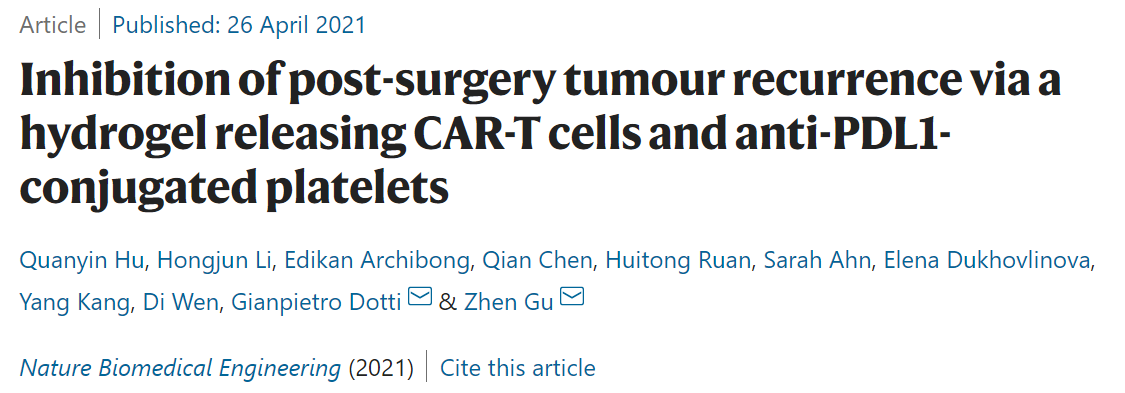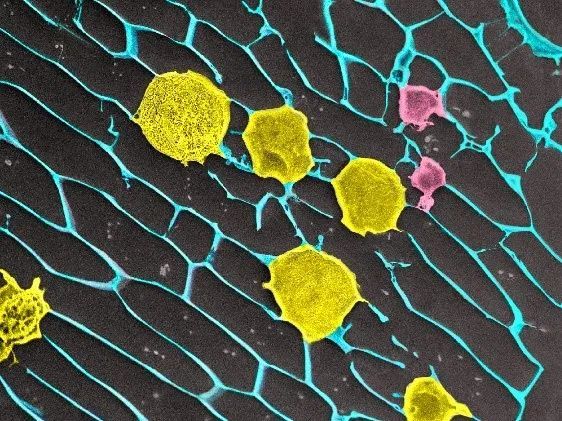Research from GU Zhen's lab has been published in Nature Biomedical Engineering
2021-04-29 | 药学院办公网
Recently, Professor GU Zhen’s lab published a research article entitled Inhibition of post-surgery tumour recurrence via a hydrogel releasing CAR-T cells and anti-PDL1-conjugated platelets in Nature Biomedical Engineering.

The stimulator of interferon genes (STING) is an endoplasmic reticulum transmembrane protein that is a target of therapeutics for infectious diseases and cancer. However, early-phase clinical trials of small-molecule STING agonists have shown limited antitumour efficacy and dose-limiting toxicity. Here, we show that a polyvalent STING agonist—a pH-sensitive polymer bearing a seven-membered ring with a tertiary amine (PC7A)—activates innate-immunity pathways through the polymer-induced formation of STING–PC7A condensates. In contrast to the natural STING ligand 2′,3′-cyclic-GMP-AMP (cGAMP), PC7A stimulates the prolonged production of pro-inflammatory cytokines by binding to a non-competitive STING surface site that is distinct from the cGAMP binding pocket. PC7A induces antitumour responses that are dependent on STING expression and CD8+ T-cell activity, and the combination of PC7A and cGAMP led to synergistic therapeutic outcomes (including the activation of cGAMP-resistant STING variants) in mice bearing subcutaneous tumours and in resected human tumours and lymph nodes. The activation of the STING pathway through polymer-induced STING condensation may offer new therapeutic opportunities.

Innovation Spots
-
11
2024.05
-
15
2024.03
-
28
2024.02
-
26
2024.02
-
26
2024.02
-
12
2023.12
